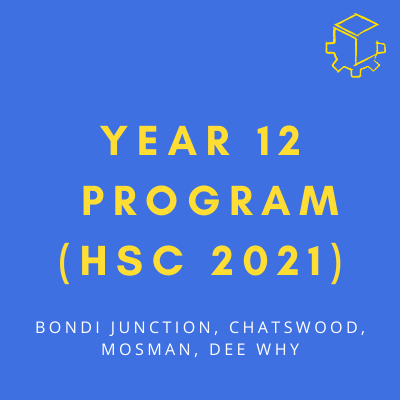In this blog, three of our senior coaches have collaborated to give you some tips to reduce stress over this stressful period.
1. Set small goals and stick to them
If you’ve ever heard the phrase ‘study smart, not hard’ you will know what I’m trying to emphasis.
There is no point languishing away at your computer screen, flicking between YouTube and your discovery essay. The only thing this achieves is a sense of dissatisfaction and a substandard essay.
Create a goal for yourself and a plan to complete it that you know will be a challenge. If you try to complete a task in a time period a bit shorter than you are comfortable with you are less likely to become distracted. When you attempt a challenging task you engage your pre-frontal cortex in your brain. There are two main advantages of this:
-
- You pre-frontal cortex is where all your high-powered thinking goes on. You are free from distraction and more readily absorb information and facts making the memorization process much quicker.
2. Plan free time
There is nothing worse than going to see a movie with friends, one week before
English Paper 1 and feeling guilty. Try to be either 100% on, or 100% off. This way you can truly enjoy your free time without having thoughts about that inescapable English essay you have been avoiding to do in the back of your mind PLUS being efficient when completing such tasks.
You don’t want to be this #5848 pleb teenager à
I know it’s easier said than done but it’s all about training yourself to develop a habit… Which leads me into part
3. Develop a habit
Being studious doesn’t just hit someone in the face and they wake up being a high achiever; it’s a process of training oneself to develop an inherent way of studying that is both effective and efficient.
You don’t have to suddenly study 10 hour days to force yourself into the habit, but you can ease into it by slowly increasing your study time each day until it becomes a habit to sit down and focus for 3 hours on a school night and around 7 hours on weekends (the numbers are just a suggestion). But of course, don’t overwork. There must be a balance between eating healthy, resting up (sleeping for 8-9 hours) and socializing.
Once you’re in the habit of studying, doing homework or higher-level tasks such as mind maps or practice exams become tasks like brushing you’re teeth. You don’t necessarily want to do it, but you feel like you have to and it feels odd if you don’t do it.
I know that sounds funny and probably impossible but it’s 100% true. Your brain is wired to repeat particular habits without thinking too much about it. The only reason you can’t do it right now is because you’re resistant. All you need to do is start scratching the surface and slowly penetrate that barrier of resistance. Tell yourself it’s not that intimidating to train yourself to be a more capable and diligent person with autopilot modes for studying 😉
4. Avoid ‘group hysteria’
This is one of the worst things about exams. When you arrive early to find a group of people sitting around discussing the worst possible scenarios and what they’re planning to do if that comes up or doing some last minute cramming of the most obscure section of the syllabus. Your exam results don’t come from what you did the morning of the exam rather the preparation you’ve been doing over the year.
The ‘bottom up’ theory of fear is reliant on the idea that our environment can subliminally induce fear. Being around scared, hysterical peers can be enough to make you feel very similar. The last thing you want is to freeze up in the middle of your exam.
When you arrive for an exam, avoid this group. Have a drink of water, a quick snack and find a quiet place to sit and get yourself ‘in the zone’.
The ‘top down’ theory of fear tells us that we can induce fear in ourselves— just from activity in our cortex. This idea works both ways. The time you spend reflecting, relaxing and preparing can undo a negative emotional state.
When your pre-frontal cortex is engaged you are less likely to become emotional about what you have to and therefore less stressed.
5. Once an exam is completed, leave it in the past
When an exam finishes its over. There is physically nothing you can do to change the result and therefore no point worrying over what has happened. You will find out the result soon enough along with an explanation of any improvements you can make.
Don’t stay behind and discuss with people how you did a particular question or what you included to make sure you got all the makes necessary. Have some down time, talk about what you’re going to do when exams are over. When you get back to studying forget about that subject and allow your full concentration.
Best of luck heading into the trials,
Fiona, Rachel & Isobel










